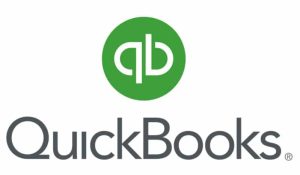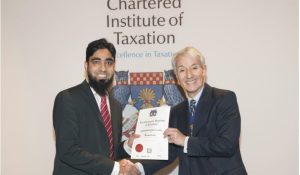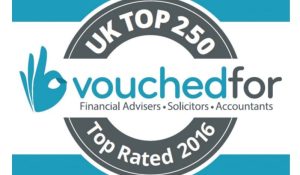Property Tax For Landlords
Property Tax Services For Landlords
Property Tax: What Is It?
If you make money from renting out a property, it’s likely that you will need to pay a form of property tax.Earnings from property rental are, in essence, treated like any other form of income, though you are granted a ‘property allowance’ of £1,000 (meaning that the first £1,000 you earn is tax free). Once you’ve crossed this threshold, the relevant income tax rate will be payable.
There are other landlord tax liabilities that may be incurred. For example, if you’re running a property business and make more than £5,965 a year, you will also be required to pay ‘class 2’ national insurance contributions (NICs). In addition, should you purchase a second home or buy-to-let investment, you will be charged an extra 3 in stamp duty land tax; and, if you are a landlord and go on to sell a property that is not your main residence but which has increased in value, a capital gains tax payment will also be due.
*Note that the information above relates to property rentals as opposed to hosting at a private residence – i.e. via the ‘Rent-a-Room Scheme’ – for which different rules apply.
How Can We Help with Your Property Tax?
The property tax landscape is complex and ever-changing. An experienced property tax accountant in London will ensure that you are kept apprised of any recent or upcoming changes, working with you to maximise use of all available reliefs and allowable expenses. If you are an IBISS & Co client, our property tax advisors for landlords in London will:
Make sure that you are up to date with all the latest legislation
The Summer 2015 Budget spelled big changes for landlord tax arrangements, with George Osborne announcing plans to restrict tax-relief with the aim of creating ‘a more level playing field between those buying a home to let and those buying a home to live in”.
In essence, these changes have capped the amount of expenses that can be deducted from property income to arrive at profit totals. Therefore, every property tax landlord needs advice from our property tax accountants in London.
Landlords have to pay income tax on any rental income that they receive. This is variously referred to as landlord tax, property income tax, and buy to let tax - but it is all the same thing. Tax is incurred on your net rental income i.e. the profit you make.
Yes. As a landlord, you pay tax on your net rental income - that is, any profit you make from renting out a property
The allowance on property tax for landlords is £1,000 each tax year. If the taxable income from your property is under £1,000, there is no need to declare it to HMRC. Since April 2020, landlords have also been able to receive a tax credit worth 20% of their annual mortgage interest payments.
Landlords can claim for specific property expenses, known as ‘allowable expenses’. These include repair and maintenance costs, some legal fees such as those in connection with lease renewal, and insurance fees. If you pay ground rent or management fees, these can also be claimed. For full details on what you can claim, speak to the team at Ibiss and Co today.
Not paying your landlord tax can result in huge penalties from HMRC. Up to 20 years’ worth of tax payments can be reclaimed in addition to fines.
Landlords pay the same rate of tax on rental properties that they pay on their income from business or employment. If you’re a standard rate taxpayer, you’ll pay a rate of 20% on both your earnings and rental profit. Higher rate taxpayers pay 40%, and additional rate taxpayers pay 45% on rental profit.
The property allowance enables landlords to make £1,000 from property each tax year without having to declare the earnings to HMRC. Thereafter, any profits are taxed at the same income tax rate as your earnings from business or employment.
While it’s not essential for landlords to have an accountant, it is advisable. An accountant can ensure you are claiming all the allowable expenses you’re entitled to, and that you pay the correct amount of tax, whether you let a single property or have a large portfolio.
There are a number of ways in which you can legally reduce the amount of tax you pay on rental income. These include ensuring you claim for all relevant allowable expenses, claiming for home office expenses and carrying forward losses. The best approach is to speak to reputable property accountants such as the team at Ibiss and Co to ensure you’re not overpaying tax.
Choosing a good property accountant depends partly on your own preferences and circumstances. Good accountants for buy to let landlords will have years of experience and a varied portfolio, and they will be full licensed in the country where they practice. Their fees should be transparent, and they should be able to help you with the Making Tax Digital initiatives that affect landlords.
Want further accounting advice? Get in touch with your local IBISS & Co branch
Contact Us Online
- 2017-2018: landlords will be able to deduct 75 of finance costs, with the remaining 25 given as a basic rate tax reduction.
- 2018-2019: landlords will be able to deduct 50 of finance costs, with the remaining 50 given as a basic rate tax reduction.
- 2018-2019: landlords will be able to deduct 25 of finance costs, with the remaining 75 given as a basic rate tax reduction.
- 2020-2021: 100 of financing costs will be given as a basic rate tax reduction.
As your advisers, we would keep on top of these – and any further – changes to relief and taxation, and ensure that we have a strategy in place to reduce your landlord tax liability.
Reduce the amount of tax payable by:
-
Making use of all available reliefs.
You may be able to claim income tax reliefs, for instance, or make use of the recent ‘domestic items’ relief (which replaces the existing ‘wear and tear’ scheme). -
Advising on expenses that are not allowable,
such as mortgage payment elements (keeping abreast of recent changes) and personal expenses (such as telephone calls not related to the business).
-
Help you calculate ‘allowable’ expenses.
Many of the general costs incurred through day-to-day and general landlord duties can be offset against your profits, significantly impacting on your property tax. Such expenses include: legal fees (for up to a year); buildings and contents insurance; cleaning and gardening services; and general business costs, like advertisements or stationery. We will help manage your accounts to ensure these adequately reflect your costs.
The last thing that any landlord needs is to be hindered by unexpected property tax liabilities. If you instruct an IBISS & Co chartered certified accountant to handle your affairs, our top priority will be ensuring that your business is both profitable and enjoyable to run – and that tax is no cause for concern. To find out more about our services or to book a free conference with an expert tax consultant, please contact IBISS & Co today.
Next Step:
Please contact us if you need further advice, have any questions about our services, or would like a free consultation or a fixed quote.
We Help Our Clients
- HMRC Self employed registration
- Self Assessment submission
- Unlimited accountancy support
- Dedicated client management
- VAT registration and filing - additional cost
- Online accounting software - additional cost
- Free Open Banking links - additional cost
- List Easy bank reconciliation - additional cost
- Receipt scanning app - additional cost
- Business Mileage app - additional cost
- Discounts on Mortgage services and Business Insurance
*from £30 +VAT (Per Month)
- All your accountancy questions answered
- Statutory Year End accounts
- Corporation Tax filing
- Phone and email support
- Company formation, registration for company taxes & Registered Office address
- Timely Company Filings
- Tax Planning
- Simple online accounting software
- Free Open Banking links
- Easy bank reconciliation
- Receipt scanning app
- Business Mileage app
- Discounts on Mortgage services and Business Insurance
*from £70 +VAT (Per Month)
- Self Assessment
- MTD VAT Submissions
- Annual Accountancy Health check
- Our speediest support & service
- Unlimited phone and email support
- All your accountancy questions answered
- Registration for company taxes & Registered Office address
- Timely Company Filings
- Detailed Tax Planning
- Pro online accountancy software
- Free Open Banking links
- Easy bank reconciliation
- Receipt scanning app
- Business Mileage app
- Discounts on Mortgage services and Business Insurance
- References
*from £150 +VAT (Per Month)
- Income Tax Planning
- Overseas Workday relief
- Effective Tax planning for property landlords
- Capital Gain Tax Mitigation
- Inheritance tax and succession planning
- Property Incorporation
- Let property campaign filings
- Worldwide disclosure facility
- Non resident Non domicile taxation
- HMRC enquiries and Tax Investigations
- Super deduction tax planning -Budget 2021
- Family owned business tax saving techniques
- VAT on property
- Stamp duty land taxes
- Corporate structure planning including Groups
*from £150 +VAT (Per Hour)
Reviews






















